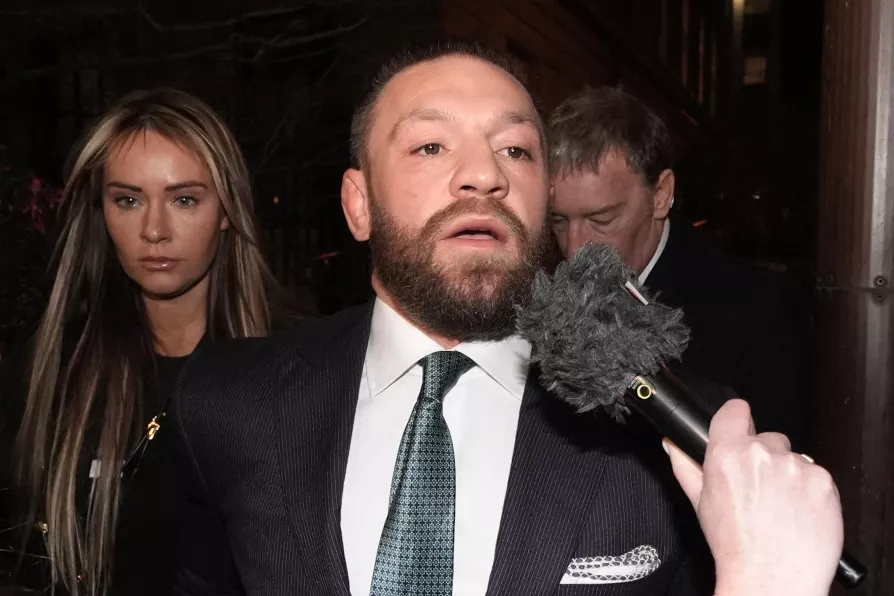
 Mixed martial arts fighter Conor McGregor and partner Dee Devlin leave the High Court in Dublin after the personal injury case against him, November 22, 2024
Mixed martial arts fighter Conor McGregor and partner Dee Devlin leave the High Court in Dublin after the personal injury case against him, November 22, 2024
IRISH MMA star Conor McGregor’s fall from grace could not have been more dramatic. From global icon and business tycoon, worshipped by millions across the world, to convicted rapist after civil proceedings in Dublin, his is a tale of how fame corrupts and absolute fame corrupts completely.
It also confirms that the hyper-masculinity of combat sports constitutes a potential danger to both the fighters involved and society in general. The result of this danger in McGregor’s case is a traumatised female victim with the courage to stand up to him, a man whom so many have bowed down to, and he now dealing with the aftershock in terms of now being widely regarded as a pariah.
McGregor’s unravelling, it should be understood, began long before the point where his sense of entitlement culminated in rape. It is a story worthy of the character from Greek mythology, Icarus; whereby his wealth and fame propelled him to fly too close to the sun.

MEIC BIRTWISTLE offers an appreciation of the renaissance man GARETH MILES

The outcome of the Shakespearean modern-day classic, where legacy was reborn, continues to resonate in the mind of Morning Star boxing writer JOHN WIGHT












